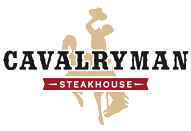“Powder River, Let ‘er Buck”
By
Phil Roberts
Professor of History, University of Wyoming
Former UW football coach Joe Glenn (2003-08) often repeated the familiar mantra “Powder River, Let ‘er Buck,” as an expression indicating resolve—“we’re going to go out and do this task successfully, whatever the obstacles.” The derivation of the expression was debated as long ago as the 1920s because it had been used frequently by American soldiers in World War I. A succession of veterans assumed it had origins in their respective home states—not all of them from Wyoming.
According to an old-time Wyoming cowboy who wrote about the origins of the expression in Annals of Wyoming, the term first gained notice in central Wyoming—right where you’d expect—along the banks of the Powder River. In the winter of 1928-29, the Annals editor asked Edward J. Farlow of Lander, a well-known former mayor of Lander and state legislator, to tell the story in order to resolve the question that “has been revived by an eastern publication.”
Here’s how Farlow explained the origins in “Powder River, Let ‘er Buck: Famous World War Slogan Came from Lips of One Missouri Bill,” in Annals of Wyoming, January 1929:
“In the fall of 1893, the L outfit, Four Jay, Horse-collar and IX outfits pooled their herds of 1,600 beef steers and dry cows to be driven to the railroad and shipped east to market at the Double Dives, on the south side of the Big Wind River, just south of where the town of Riverton now stands…. When this roundup was over, the beef bearing the brands I mentioned above were all put in one herd, and the outfit shaped up for the long drive to the railroad. This time to Casper, as we had never shipped from Casper before, and this was our first trip and the trail was new to all of the cowboys, but myself.”
The outfit consisted of eight cowboys, one cook, one horse wrangler, and Farlow who was boss of the outfit. As Farlow pointed out, usually the herds were taken south to Rawlins to the train, and sometimes to Medicine Bow. But this time, it was to Casper.
“None of them had ever seen Powder River and they were all excited. In the morning when they were catching horses for the day, I called out to them to get their swimming horses as we were going to cross Powder River several times before night. Missouri Bill, who already roped his horse, turned him loose, muttering that ‘this damn buckskin couldn’t even wade a river.’
“About 10 o’clock the lead of the herd reached the river and it was almost dry, the water standing in holes and barely running from one hole to the other. The herd followed down the stream for a distance of about two miles before they were watered, and we crossed it many times.
“When Missouri Bill saw it, he looked at it very seriously for some time, and then said, ‘So this is Powder River,’ and that night in camp he told us he had heard of Powder River and now he had seen Powder River, and he kept referring to Powder River nearly every day until we reached Casper, which we did in 28 days.
“In the evening before we were going to load for shipping, and the cattle were all bedded down near the stockyards, the boys all adjourned to the saloon for a social drink, and Missouri Bill said, ‘Boys, come and have a drink on me; I have crossed Powder River.’ They had the drinks and a few more and were getting pretty sociable.
“When Missouri Bill again ordered, he said to the boys, ‘have another drink on me; I swam Powder River,’ this time with a distinct emphasis on the words ‘Powder River.’ ‘Yes, sir, by `Powder River,’ a little stronger emphasis. When the drinks were all set up, he said, ‘Well here’s to Powder River, Let ‘er Buck.’….
The slogan was shouted louder and louder along with other similar references to the stream, very tiny most the year where the cowboys had crossed it en route to Casper.
As Farlow concluded his story, “that is the first time I ever heard the slogan, and from there it went around the world. Farlow added that “Missouri Bill’s name was William Shultz and I have not heard of him for more than 20 years. He was a good cow hand and while here he worked for the L Outfit most of the time.”
Heard frequently in the Powder River country, the term apparently was not generally used elsewhere in the state. Eventually, however, the phrase became associated with the University of Wyoming, probably as a result of returning soldiers from World War I and Powder River Basin students repeating the phrase.
In the late 1920s, competition was announced for a school “fight song” for UW. The winning entry, written by Lorna Simpson, wife of Milward Simpson (later, a UW trustee, governor and U. S. Senator), included the words, “Powder River, Let ‘er Buck.” (The song was sung at the dedication ceremonies for the Simpson Family Plaza on the UW campus in September 2006).
Coach Glenn re-popularized the phrase, but many others followed, even after the coach’s departure from UW in 2008. Long-time students and faculty are re-introducing Wyoming students (and younger state residents) to a commonly used expression of resolve dating from the days of the range cowboys in the early statehood period.
Phil Roberts, “Powder River, Let ‘er Buck.” Professor of History, University of Wyoming
Learn more about the phrase “Power River, Let ‘er Buck,” Professor Phil Roberts and Wyoming.
